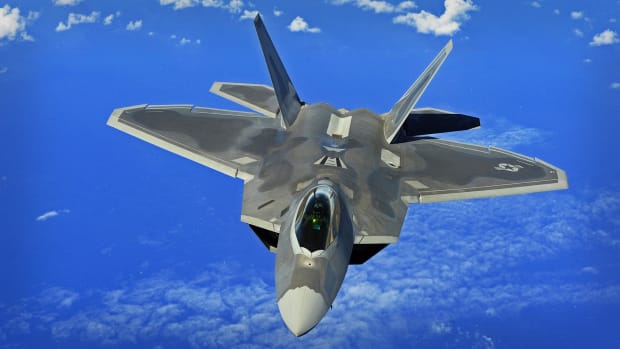
You may not get rich working as a member of the US armed or uniformed service, but if you rub shoulders with the right person, you sure can retire comfortably.
This is increasingly the case for many senior Pentagon officials, whose power and influence is tantalizing for many American defense contractors who have deep pockets and global ambitions.
DON'T MISS: Sen. Warren Calls Out U.S. Banks Over Controversial Practice
"The day I left the military," former Chairman of the Joint Chiefs of Staff General Henry H. Shelton said from his waterfront home, "my phone started to ring off the hook."
"Why do you think they are wanted on corporate boards?" Center for American Progress military analyst Lawrence J. Korb asked. "It's not because someone led the Persian Gulf war, but for who they know, and their contacts. They can open the door."
These comments are over 15 years old but remain truer than ever as the U.S. descends into yet another global engagement, lining the pockets of defense contractors and enriching the few at the top with influence who'll never see front lines.
Contractors like Boeing (BA), Lockheed Martin (LMT), and Northrop Grumman (NOC) work tirelessly behind the scenes to develop swifter, bigger, and more efficient ways to impose American influence around the world. Optimists will say this is the best way to spread democracy. Cynics will say it's just business.
Senator Elizabeth Warren (D-MA) falls into the latter category. In an op-ed for The Military Times, she argues that "it’s time to slap a padlock on," the process that turns former Pentagon officials into fat cat defense contractor board members and violate American trust and ethics.

Shutterstock
Elizabeth Warren Calls Out Defense Contractors
As Army Gen. Mark Milley's four-year term approaches its end, President Biden is expected to tap a new Chairman of the Joint Chiefs of Staff soon. The candidate must be nominated and confirmed by the Senate, a process which might drag out due to partisan politics and conflicting interests.
Senator Warren, who sits on the Armed Services Committee, has concerns about potential partisan backdoor deal which could ultimately undermine American interests.
"The nominee should also address an urgent question about public integrity at the Pentagon — the revolving door," Warren writes in the op-ed. "This is a chance for the nominee to set a high ethical standard by agreeing in advance that he will not immediately jump from a position of public trust to a lucrative job working on behalf of a defense contractor or a foreign adversary."
Lockheed Martin's 13-person board, for example, includes two retired U.S. generals, one of which was the former chairman of the Joint Chiefs. Boeing's 13-person board also several former members of the armed services, including the former Chief of Naval Operations.
"The defense industry produces the weapons we need, and it also produces enormous rewards for its executives and investors. Companies want to keep the money flowing, so they hire Pentagon officials to help them win multibillion dollar government contracts — contracts that are awarded by their own former colleagues," Warren writes.
"The boards of the Pentagon’s other top weapons contractors include former Secretary of Defense Jim Mattis, Chiefs of Naval Operations John Richardson and Gary Roughead, Deputy Secretary of Defense Bob Work, Air Force Chief of Staff Mark Welsh, and Vice Chairman James Winnefeld."
But the money doesn't stay within our borders, Warren argues.
"Since 2015, more than 500 retired military officers, including admirals and generals, retired from the U.S. military only to sign up to be on the payroll of foreign governments," she writes, claiming that former officials on foreign payrolls is not only shady business, but leaves U.S. interests vulnerable to coercion.
"Our national security policy is distorted when defense contractors have an outsized influence over the Pentagon or when senior leaders see no problem with selling their credentials to the highest bidder," she writes. "The next chair of the Joint Chiefs should set an example from the top by making strong ethics commitments. In addition, the Pentagon and Congress should make other structural changes."
Warren advocates for a bar on foreign officials joining defense contractors' corporate governance boards for at least four years after service, tightening lobbying rules, and returning to the constitutional stipulation that officers may not work for foreign governments. If any exceptions are to be made, Warren advocated for making that information freely available to the public for maximal scrutiny.







